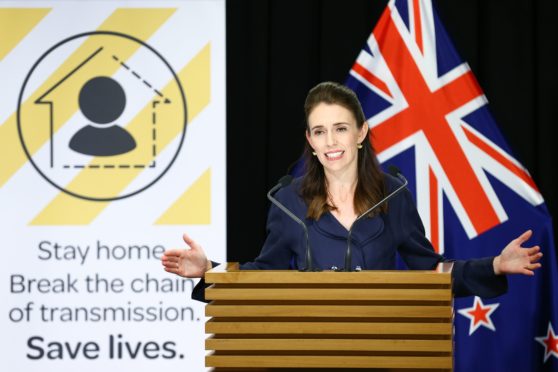
Kia kaha in the Mãori language translates to “stay strong”. It’s a phrase we hear every day here in New Zealand, broadcast by the country’s media, and spoken frequently by its beloved leader, Jacinda Ardern.
Strength is a quality we have all had to dig to find during the Covid-19 crisis, but in New Zealand it’s something Ms Ardern and her government, alongside consistent positive media output, has managed to further instil in all of us.
I came from Scotland to these South Pacific islands four months ago, as a chance to work and travel in a country I had always admired for its natural beauty and adventurous lifestyle.
I expected to find some breathtaking landscapes, nice beaches and a lot of sheep, but what I didn’t know I’d discover was a wholesomely kind and honest people so ready to help and welcome, and, more recently, so unified in their response to the global crisis.
Ms Ardern is an embodiment of this New Zealand mindset. While in the UK the vast majority of the population feel they have very little in common with their leaders, here in New Zealand, put simply, it’s easy to imagine Ms Ardern living next door.
She even used to work in a fish-and-chip shop. As a local said to me: “She’s not a superhero, she’s just a Kiwi.” And, throughout this crisis, the people have wanted to do well for New Zealand, but also for her.
Doing well and almost eradicating Covid-19 from these shores, however, has been made all the easier by strength of government, strength of communication and strength of lockdown rules and guidelines. Even before the lockdown began, the announcement of four alert levels and the rules that came with each, allowed the country to prepare. No one was ever in any doubt about what was permitted at each level.
Frequent government updates broadcast throughout the day explaining the strict lockdown continue to ensure this widespread awareness.
The positivity of the country’s news coverage also has a significant effect on keeping the country unified and fighting towards as happy an end as possible. And the end, here, seems to be in sight. This week, the country went from level four lockdown – one of the strictest on the planet – to level three, after Ms Ardern announced on Tuesday the country has “won the battle” against Covid-19. This does not mean zero cases, but health officials now know where all new cases are coming from.
This is an amazing feat when you compare New Zealand to the UK, two countries historically bound to one another, but now as distant geographically as they are politically, and in the way each leader has dealt with crisis.
In contrast to the apparent fatalism at the top of governments in Britain where from the very first there seemed to be an expectation that many lives would be lost, Ms Adern acted quickly, rejecting herd immunity claims, closing borders and rallying us together to keep safe as many New Zealanders as possible. It seems her actions have saved thousands of lives.
For a little country of five million on the edge of the world, New Zealand has now proved itself a global leader in combating disaster.
But, no matter where we are in the world right now, we have the same virus to defeat. So, for now, all we can continue to do is join together separately, and, as they say and do here in New Zealand, kia kaha.

Enjoy the convenience of having The Sunday Post delivered as a digital ePaper straight to your smartphone, tablet or computer.
Subscribe for only £5.49 a month and enjoy all the benefits of the printed paper as a digital replica.
Subscribe